The new U.S. administration should appeal to Muslim communities around the world through the substance of its policies rather than through awkward and misplaced public relations schemes, argues Peter Mandaville. This piece first appeared on Georgetown University’s Berkley Forum.
On the face of it, the central thrust of my argument here will seem counterintuitive. Surely in the aftermath of Donald Trump advocating in 2016 for a total ban on Muslims entering the United States and then staffing the upper echelons of his administration with figures associated with aggressively Islamophobic rhetoric, the incoming Biden team will want to go out of its way to signal very clearly that it welcomes engagement and partnership with Muslim communities around the world?
In this sense, the new U.S. administration faces a challenge not dissimilar to the one Obama faced when he took office in 2009. In the wake of George W. Bush’s Global War on Terror, the wars in Afghanistan and Iraq, and a broad perception that the United States viewed Muslims around the world primarily through the lens of security, Obama was keen to push up the needles on America’s rock-bottom favorability ratings as measured through public polling in Muslim- majority countries around the world.
This aspiration led to the creation of a veritable cottage industry of Muslim engagement activities in U.S. foreign policy from 2009. Inaugurated by Obama’s famous June 2009 Cairo speech on “a new beginning between the United States and Muslims around the world,” this workstream involved the creation of a new special representative for Muslim communities at the Department of State and millions of dollars in proposed public diplomacy activities primarily focused on engaging Muslims around the world.
While the basic impetus behind this work—reassuring the followers of a world faith tradition much maligned in recent U.S. public discourse that America sees them as friends and partners rather than enemies—was positive and laudable, the nature and very framing of the work soon created numerous complications. As a member of the U.S. State Department’s Policy Planning Staff from 2011 to 2012 charged with coordinating aspects of these activities, I had a front-row seat for much of the effort. By reviewing a few of the tensions associated with this previous Muslim engagement thrust, we can perhaps avoid recreating them when the Biden administration gets to work in January 2021.
First and foremost, there was something rather odd about the United States appearing to have policies and programs directed at an entire world religion. Never before in American history had a specific religious tradition been the focus of diplomacy, nor had Washington ever dispatched an ambassador to 1.7 billion people around the world defined in terms of their faith. In this sense, the U.S. government appeared to be projecting a particular religious identity onto interlocutors who—while they may have been citizens of Muslim-majority countries—would not necessarily have defined themselves first and foremost in terms of Islam.
The choice of a “Muslim” framing for the projects associated with the Obama administration’s engagement push seems even more bizarre when one considers that the programs themselves, which focused mainly on things like entrepreneurship and STEM education, had nothing to do with religion. At the height of the Muslim engagement frenzy, I remember asking a colleague at the United States Agency for International Development whether the United States calls its Small to Medium Enterprise Capacity-Building programs in Ecuador “Christian engagement” given that 92% of that country’s population identifies as Christian. “Of course not,” he replied. “That would be bizarre since Christianity has nothing to do with the work we are doing.” So why, I wondered, is it any less bizarre to label entrepreneurship programs in Indonesia and Senegal as “Muslim engagement”?
Second, there are arguably national security implications to Washington’s endorsement of a “global Muslim” framing. A hallmark characteristic of the political discourse of Salafi-Jihadi groups such as Al-Qaeda and ISIS is the idea that forms of identity based in nationalism and nation-states are illegitimate and Muslims around the world should instead consider themselves members of a single, transnational global Muslim community (ummah). While one would not want to push this point too far, there is a sense in which the U.S. government’s emphasis on global Muslimness served to underwrite and validate the claims of transnational jihadi leaders. Moreover, Washington’s global Muslim engagement framing operated in some tension with longstanding norms in both law and diplomatic practice to regard and treat non-U.S. persons with reference to whatever national citizenship—not religious identity—they hold.
Finally, I think the previous U.S. approach to global Muslim engagement—despite its best intentions—actually served to reproduce the very problem it hoped to address in the first place. More specifically, the Obama administration’s approach to engaging Muslim communities around the world continued Washington’s tendency to exceptionalize Muslims compared to other faith communities around the world by creating diplomatic titles, roles, and programs focused on Islam in the absence of analogous offices and projects dealing with other religions. In other words, even though the central thrust of this work was designed to normalize relations with Muslims, it actually ended up helping to sustain the idea that there is something about Muslims that mean they need to be treated differently from other religious groups.
So, what does this all mean in practical policy terms?
First and foremost, it means that the Biden administration should resist the temptation to create anew a global Muslim engagement industrial complex. The outgoing administration opted to terminate the State Department’s special representative for Muslim communities function, and this is one of only a very few moves by the Trump administration I agree with.
Second, there are plenty of opportunities for Biden’s diplomats to engage more conventionally on issues that matter to Muslims. We easily forget that the rapturous response Obama received after the 2009 Cairo speech was about his proposed initiatives on Iran, Israeli-Palestinian peace, and Middle East human rights—not entrepreneurship or science education. This is not to say that the U.S. should scale down its development and foreign assistance efforts in Muslim-majority countries—quite the opposite. But it should refrain from defining and describing that work as “Muslim engagement.” And on the political front, there will be plenty of opportunity for Biden to signal a very different approach from the Trump administration on issues such as human rights, Palestine, and the Iran nuclear deal.
In other words, the new U.S. administration should appeal to Muslim communities around the world through the substance of its policies rather than through awkward and misplaced public relations schemes.
The Brookings Institution is committed to quality, independence, and impact.
We are supported by a diverse array of funders. In line with our values and policies, each Brookings publication represents the sole views of its author(s).

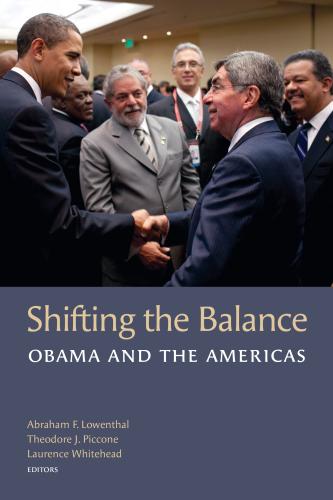
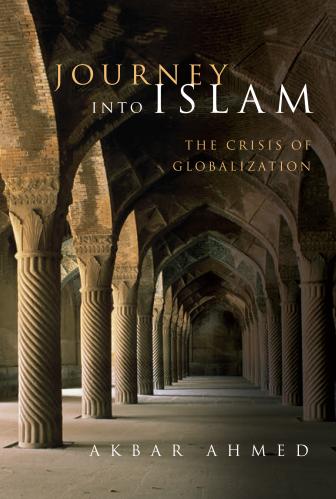
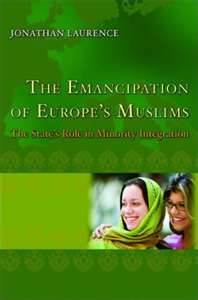
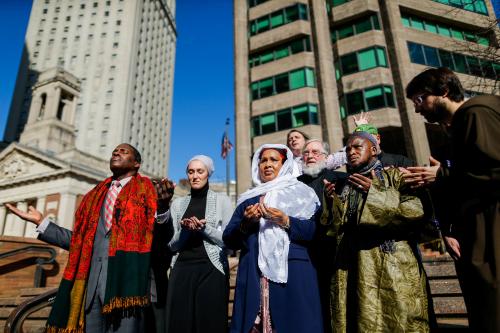


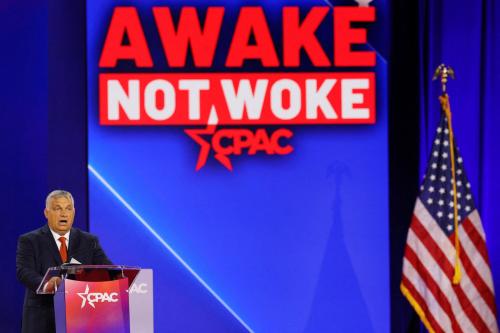

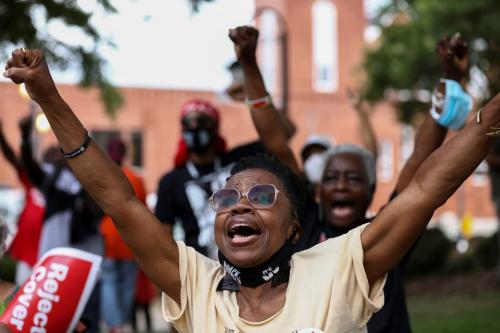
Commentary
Why the Biden administration should stay out of the global “Muslim engagement” business
December 14, 2020